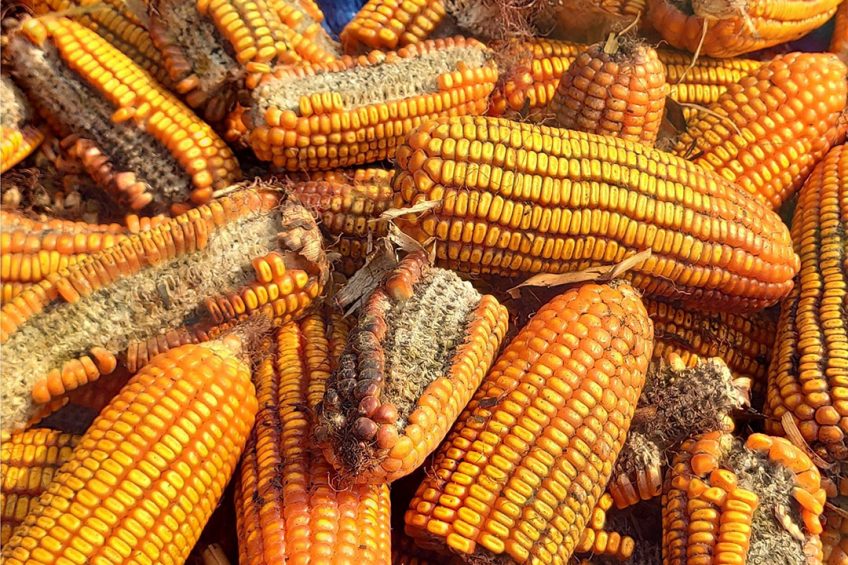NIR imagery detects mycotoxins in corn

New research by Embrapa and the Federal University of Minas Gerais in Brazil shows mycotoxins in corn can be identified quickly and accurately using near-infrared (NIR) imagery. This could replace expensive and complex methods of analysis.
The scientists combined hyperspectral images with computational recognition successfully to identify fungi species F. verticillioides and F. graminearum.
These fungi are considered the most harmful to corn because they cause mycotoxins. F. verticillioides causes fumonisin mycotoxin and F. graminearum is associated with zearalenone.
Fast and non-destructive method to detect and identify mycotoxins
According to the researchers, NIR imagery is able to detect and identify these fungi quickly and accurately. It could replace current inefficient methods of analysis and avoid contamination with mycotoxins.
“Using NIR and imagery analysis we aim to develop a fast and non-destructive method, free of chemicals. This method allows quick analysis of corn samples, while the identification of pathogens is done with more precision,” said Maria Lúcia Ferreira Simeone, a researcher at Embrapa Maize and Sorghum.
The study, which was recently published in Food Chemistry, shows traditional mycotoxin detection methods require a high level of knowledge, complex laboratory techniques and a lot of time. According to the researchers, pathogens are difficult to identify and control. “Therefore, the search for alternative methods is of great relevance for the entire corn production chain,” said Simeone.
Federal University of Minas Gerais doctoral student, Renata Regina Pereira da Conceição, developed the new method with Embrapa. According to her, the new research method shows 100% accuracy.
Mycotoxins cause large losses
Brazil is the third-largest producer (around 109 million tonnes) second only to the US (360.3 million tonnes) and China (260.7 million tonnes).
Annually, mycotoxins affect 25% of the world’s corn production, according to the Food and Agriculture Organization (FAO). The financial damage in the US alone can be as high as US$1.68 billion per year.











